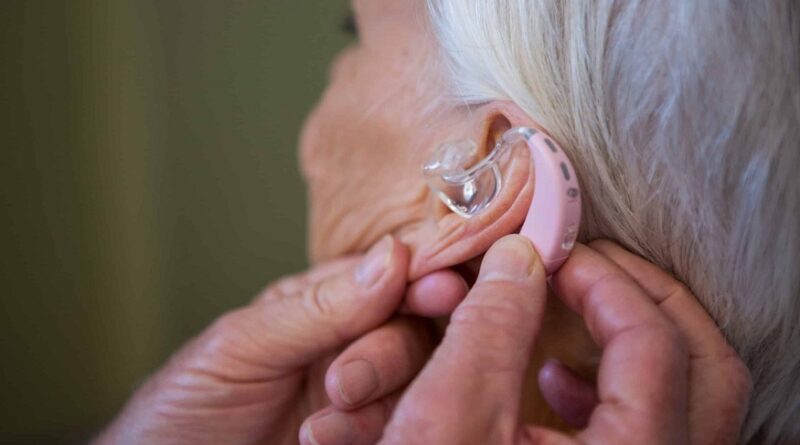Hearing Aids Can Help With Hearing Loss and Dementia
Hearing loss can come with a variety of issues. This ailment could hamper an individual’s capability to have conversations or perform operations with others, which could leave one feeling alone. It may also hinder critical elements of everyday life. This may involve listening for doorbells or the telephone, communicating with others while eating out, and comprehending physicians and druggists when handling pharmaceutical care.
Johns Hopkins Bloomberg School of Public Health has found through studies that elderly folks with serious auditory impairment possess a loss of cognitive function many times more when compared to other people. However, these individuals may lower their risk of developing dementia when a hearing aid is worn.
A group of more than 2,400 elderly people nationally was reviewed for this analysis. The outcome is substantially steady with previous findings that concluded hearing loss could play a part in dementia chances over the years. As a result, researchers have speculated that managing auditory impairment could assist in decreasing the possibility of possessing these cognitive issues.
Alison Huang, Ph.D., MPH, states that these findings clarify what has been discovered about hearing loss and cognitive impairments in the elderly. It shapes the assistance for public health activity to enhance the auditory care approach.
For American folks 70+, approximately 66% of this population will experience some sort of hearing loss. Therefore, many techniques, such as hearing aids, can be implemented to assist in the impairment of listening, as well as decreasing dementia.
For this research examination, Dr. Huang and associates examined a countrywide delegate range of data submitted by the National Health and Aging Trends Study. This research has been continuous since 2011, employing a countrywide sampling of Health insurance recipients over 65, and has positioned a specific focal point on those 90+, as well as the African American population.
The study involved 2,413 folks, with approximately 50% of them 80+, who displayed a distinct connection between the intensity of auditory impairment and derangement. Derangement predominance among individuals with average-to-serious auditory damage was 61 % greater paralleled to folks with ordinary listening. At the same time, utilizing a hearing aid was linked with a 32 % decrease in the predominance of derangement in the 853 individuals who possess a reasonable-to-serious auditory decline.
Investigation personnel found that various surveys concentrating on this subject were restricted due to them relying on in-site evidence collecting. This method does not include fallible communities that did not possess the means nor the capability to get themselves to a research site. For this recent research, faculty gathered information through in-home tests and discussions.
Exactly how auditory decline is related to cognitive functioning is not obvious. However, previous analyses indicate a couple of probable justifications. Dr. Huang’s study was combined with a study that was first begun by the Cochlear Center for Hearing and Public Health, looking at the relationship between auditory impairment and cognitive functioning.
Going ahead, the examination group plans to shape a much more extensive knowledge of the impact of auditory decline therapy on comprehension and dementia from their Aging and Cognitive Health Evaluation in Elders (ACHIEVE) Study. These outcomes from this three-year randomly assigned research are anticipated at some point in 2023.
If you’re in the Clearwater region and are concerned about hearing loss, or have questions about hearing aids, visit Countryside Hearing Aid Services. They are a family-owned and run company that has been around since 1979and are the only Better Business Bureau Accredited A+ Rated hearing aid agency in Pinellas County.

